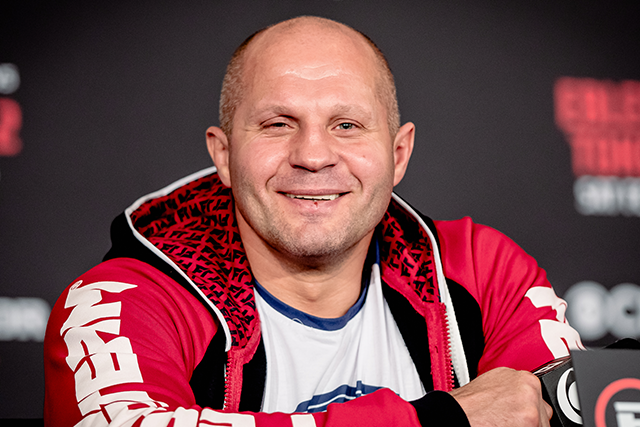Vancouver Continues Running Joke on Itself
Jake Rossen Jul 10, 2010
John McCain, Bob Reilly, and Phil Mushnick -- fighting
sport-adverse fogeys all -- must think Vancouver is lovely this
time of year. The city is on
the brink of becoming the biggest black hole of nonsense in
North American MMA.
According to the Vancouver Sun report, the two-year “trial period” issued by the province for the sport is intended to study outcomes relating to injury and public reaction -- but because of byzantine liability and insurance issues, they might not allow any beyond the UFC that was held there in June: promoters for smaller shows seeking licensure are being either ignored or told to “be patient.”
"We need to know what lessons were learned from that show, what
worked, what didn't, what we worried about but didn't need to worry
about, said council member Kerry Jang. “Once we get these reports
back, we can figure out the smaller events.” Jang blames the freeze
on federal culture minister James Moore, who has yet to act to
decriminalize MMA. If true, the city is paying a steep price for
his lethargy: the UFC brought 17,000 fans to GM Place for Chuck
Liddell’s second retirement party against Rich
Franklin.
This is real “oh, come on” material: it’s too easy to pick at a sluggish and inefficient government structure that’s struggling to embrace a format that’s been running with regularity virtually everywhere else in the world. It also speaks, again, to the silliness of expecting this sport to become a universal language. Vancouver, Germany, and New York are still choking back bile: countries like China have pathetically under-developed talent that’s far out of proportion to their population. If this thing is a “virus,” as some fans describe spreading fascination, then several parts of the world have developed antibiotics for it.
Vancouver’s issues are buried in “liability” concerns, often demanding significant insurance premiums. But when has any athlete ever sued a promotion, or even required medical care that would warrant a rumored $10-12 million blanket that the UFC was forced to provide? Do they worry a building will collapse? Is Vancouver prone to earthquakes? Volcanic eruptions?
I can provide one bit of advice: thanks to more ambitious regulators, Vancouver has 17 years of “outcomes” to study and probably has the ear of any athletic commission in the U.S. they request assistance or information from. When people say judges are the most frustrating component of MMA, they’re forgetting bureaucracy.
According to the Vancouver Sun report, the two-year “trial period” issued by the province for the sport is intended to study outcomes relating to injury and public reaction -- but because of byzantine liability and insurance issues, they might not allow any beyond the UFC that was held there in June: promoters for smaller shows seeking licensure are being either ignored or told to “be patient.”
Advertisement
This is real “oh, come on” material: it’s too easy to pick at a sluggish and inefficient government structure that’s struggling to embrace a format that’s been running with regularity virtually everywhere else in the world. It also speaks, again, to the silliness of expecting this sport to become a universal language. Vancouver, Germany, and New York are still choking back bile: countries like China have pathetically under-developed talent that’s far out of proportion to their population. If this thing is a “virus,” as some fans describe spreading fascination, then several parts of the world have developed antibiotics for it.
Vancouver’s issues are buried in “liability” concerns, often demanding significant insurance premiums. But when has any athlete ever sued a promotion, or even required medical care that would warrant a rumored $10-12 million blanket that the UFC was forced to provide? Do they worry a building will collapse? Is Vancouver prone to earthquakes? Volcanic eruptions?
I can provide one bit of advice: thanks to more ambitious regulators, Vancouver has 17 years of “outcomes” to study and probably has the ear of any athletic commission in the U.S. they request assistance or information from. When people say judges are the most frustrating component of MMA, they’re forgetting bureaucracy.








